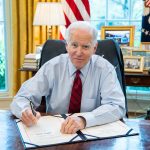In a recent segment on a conservative news channel, RNC Chair Mike Whatley gave the political landscape for the upcoming election a good ol’ once-over. It appears that the Republican Party, led by none other than Donald Trump, is feeling quite chipper about their chances in key battleground states like Pennsylvania, North Carolina, and Michigan. According to the latest Fox News polls, Trump is neck-and-neck with Kamala Harris, showing leads in some areas and a tie in others. While some critics suggest that the numbers fall within the margin of error, Whatley argues that the Republican position has dramatically improved compared to previous election cycles.
Looking back at Trump’s last bids, he often found himself trailing several points, leading to some nail-biting moments for his supporters. But now, Whatley points out a silver lining—today’s polling numbers show Trump in a far stronger position. Not only is he showing signs of support from likely voters, but the numbers in voter registration and absentee ballot requests are trending favorably for the Republicans. It seems the party is reaping the rewards of their dedicated campaigning efforts, setting the stage for what could be a thrilling Election Day.
Meanwhile, Democrats often brag about their ground game, claiming to have organized teams of thousands in crucial states like Pennsylvania. Yet, Whatley seems unfazed, asserting confidence in the GOP’s ground strategy. The Republican National Committee has reportedly revamped its approach to connect with voters who may not have participated in past elections. Their outreach has yielded impressive initial results, indicating that they resonate with low-propensity voters. This resurgence of grassroots engagement means that Republicans feel pumped and ready to match whatever the Democrats have.
Turning the spotlight to the issues of the day, Whatley had plenty to address regarding the comments made by President Joe Biden. In what seemed like a mix-up, Biden’s remarks left some scratching their heads about his treatment of Trump supporters. Instead of forging ahead with cohesive plans focusing on the economy and other pressing matters, the Democrats seem to be stumbling into a minefield of name-calling. Such tactics, Whatley suggests, aren’t likely to sway voters whose main concerns revolve around the economy and national security—areas where Trump has historically focused his efforts.
Ultimately, Whatley’s analysis hinges on the belief that voters want solutions and positivity rather than derogatory opinions. He argues that with Trump leading the charge and a motivated base ready to hit the polls, the Republicans are poised to make a significant impact. The closing remarks from the Democratic side may lack substance, focusing more on throwing shade rather than laying out a varying agenda. With Trump gathering momentum from rallies that electrify his supporters, the GOP’s optimism doesn’t look like it will be dampened anytime soon. The election season is shaping up to be not just a battle of policies but a showdown of ideas, excitement, and perhaps some unexpected humor.




